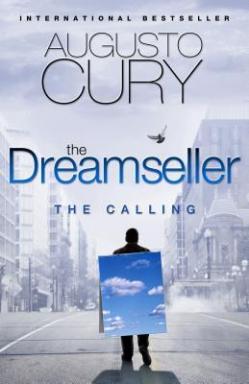It took me four months to finish reading this book; it’s probably the book that took me the longest time to read. I can give you many believable reasons why – I was busy with school, then I got busy with work – but then such things haven’t stopped me from reading other books before. Honestly, the only reason why it took me so long to finish it is that I never really got into the story. It’s as simple as that.
But no matter how much I tried and failed to get myself interested in the story, I wanted to finish the book. And it’s not because I’m the type of reader who reads one book at a time and who can’t start reading a new one without finishing the old one. I mean, I am that type of reader but that’s not the reason why I finished the book.
I wanted to keep reading the book because of the beautifully written and thought-provoking words I would come across on its pages. Really, I’ve never read a book that made me think as much and as deeply as this book had. Read these lines and you’ll understand why:
Pleasure had become as wide as an ocean but as shallow as a pond. (p.3)
Human beings hate pain but have an extreme attraction to it. (p.4)
If he thinks, he’ll understand that guilt, mistakes, disappointments and misfortune are the privileges of living. (p.9)
We’re both ignorant. The difference between us is that I recognize my ignorance. (p.13)
Mental health professionals are poets of existence, they have a grand mission. However, they can’t put a patient into a theoretical text, yet try desperately to put a theoretical text inside of a person. Don’t trap your patients between the walls of a theory, or you’ll reduce their abilities to grow. Each sickness is unique to the one who’s sick. Every sick person has a mind. And every mind is an infinite universe. (p.32)
I didn’t fear death, but I was deathly afraid of being embarassed. God, I was sicker than I thought. (p.36)
The greatest reason for staying alive is life itself. (p.37)
The fundamental purpose of dreams isn’t success but to free us from conformity. (p.41)
People lost their inhibitions to technology, and felt more comfortable dealing with machines than with other people. Not to engage others is a tolerable act, but not to engage oneself is indefensible. (p.121)
We live longer physically than in the past, but time seems to pass so much faster. The months rush by, the years fly by. Many are in the infancy of their mental development but look at themselves and discover their bodies are seventy or eighty. Nowadays, eighty-year-olds have the mentality of history’s twenty-year-olds. (p.125)
Life passes quickly in this small interval of time. To live it slowly and meaningfully is the great challenge of mortal men. (p.126)
The god constructed by man, the religious god, is merciless, intolerant, elitist and prejudiced. But the god who hides behind the scens of existence is generous. His capacity to forgive has no limits. It inspires us to carry those who frustrate us as often as necessary. (p.134)
The weak use weapons; the strong, their words. (p.143)
What a crime that what the fashion world has stereotyped as ‘beautiful’ is nothing more than a generic accident. (p.145)
What’s normal if not that which satisfies each person? Isn’t being satisfied enough? (p.150)
Stop the neurotic need to change others. No one can change anyone else. Whoever demands more of others than of himself is qualified to work in finance, but not with human beings. (p.168)
Human beings choose to live on islands when they should be on continents. And other times, they are on continents when they should be on islands. In other words, they should be sharing ideas and experiences to help everyone overcome frustrations. But we should be islands – individuals – when it comes to taste, lifestyle, art and culture. Television fast food, the fashion industry all have served to homogenize our tastes and styles. We’ve lost our sense of individuality. (p.184)
[Capitalism] produces freedom of expression and possession, but not freedom of simply being. (p.206)
What unbearable burden. What colossal pain. As I listened to him, I began to understand that all of us, however successful, we all miss out on something. The warm sun sets on us all, no one sails forever on tranquil seas. Some lose more, others less; some suffer avoidable losses, others unavoidable. Some lose in the social arena, others in the theater of the mind. And if someone manages to get through life untouched, there is still something he loses: youth. (p.229)
We had lost the joy of simply being. We were brought up to work, to grow, to progress, and unfortunately also to betray our very essence on our short time in existence. What kind of madhouse are we living in? (p.236)
Life is very, very long for making mistakes, but frighteningly short for living. (p.237)
After closing the book for the final time, I realized that what I got from it wasn’t a story that entertains – I didn’t care for the story. But I got so much more – the book gave me several opportunities to think about life, my life and how I’m living it. These lines, and probably many more that I wasn’t able to write down, are the reasons why I would recommend others to read this book. It’s not for the story, but for the lessons, for the moments when you would just have to put the book down and think.

One thought on “I’ve fallen in love with words on paper: Augusto Cury’s The Dreamseller”